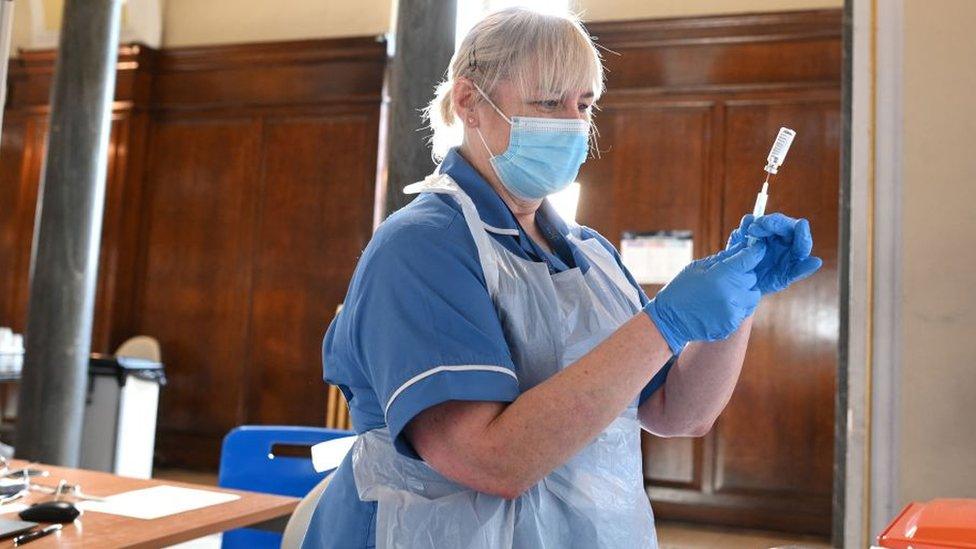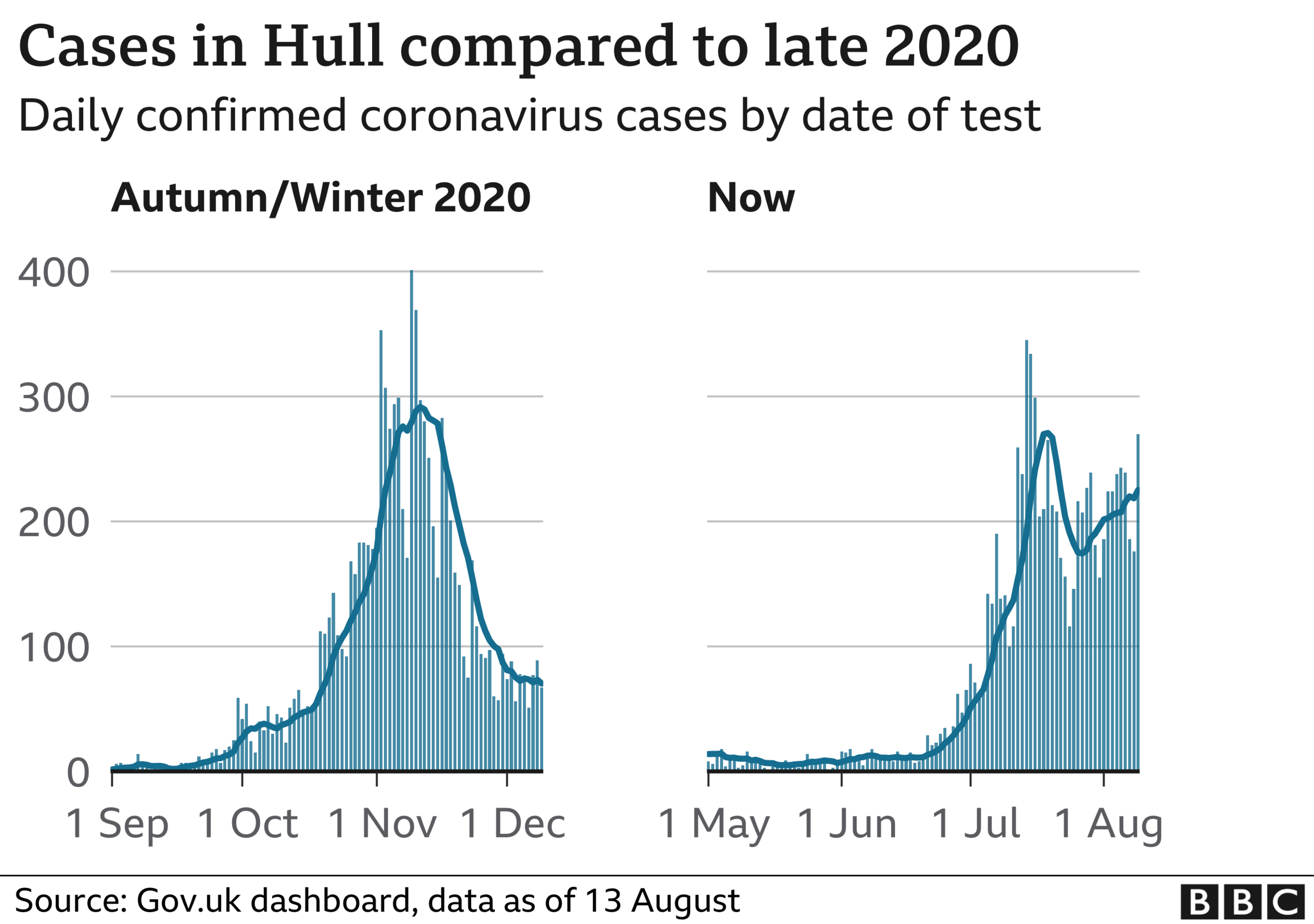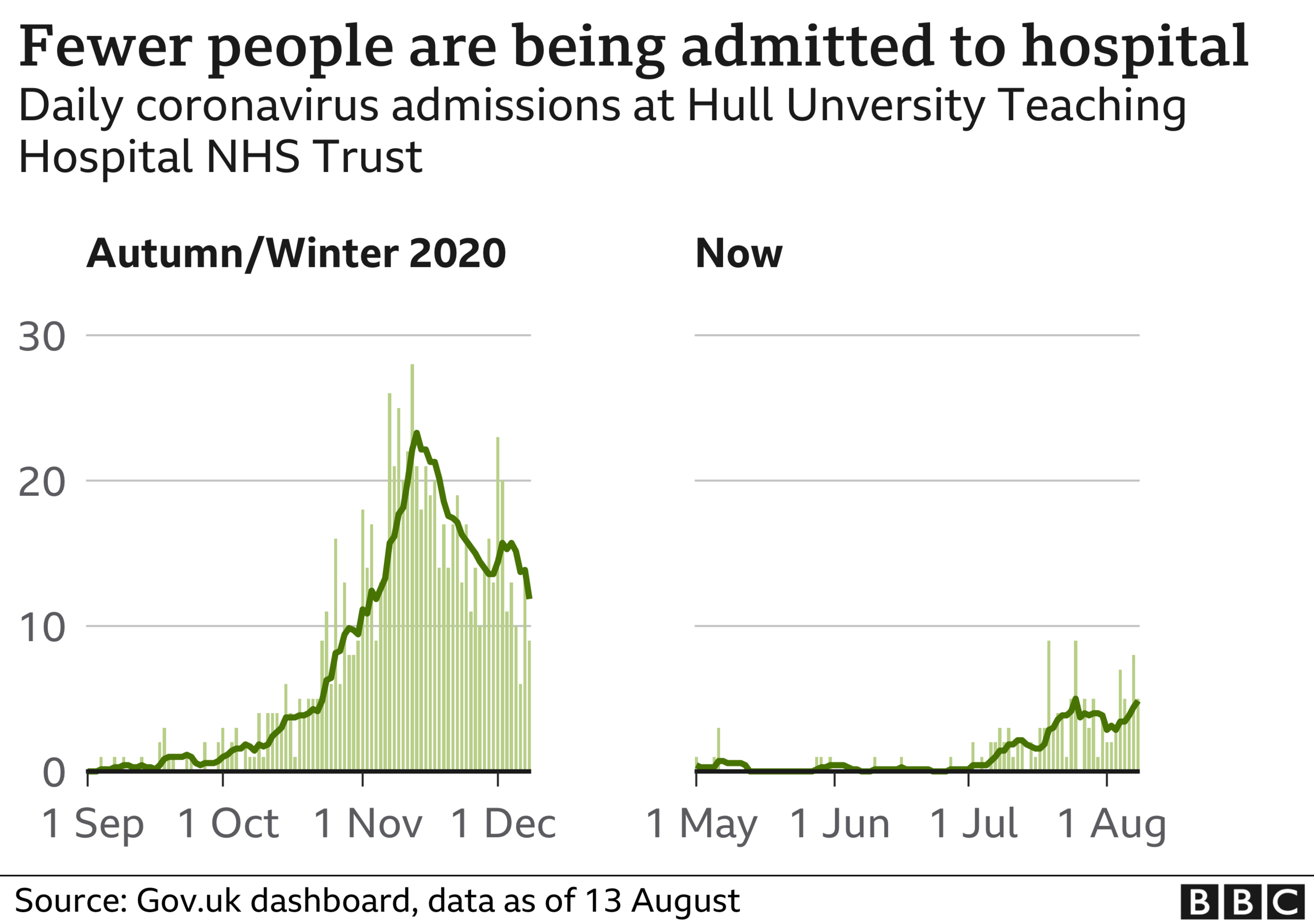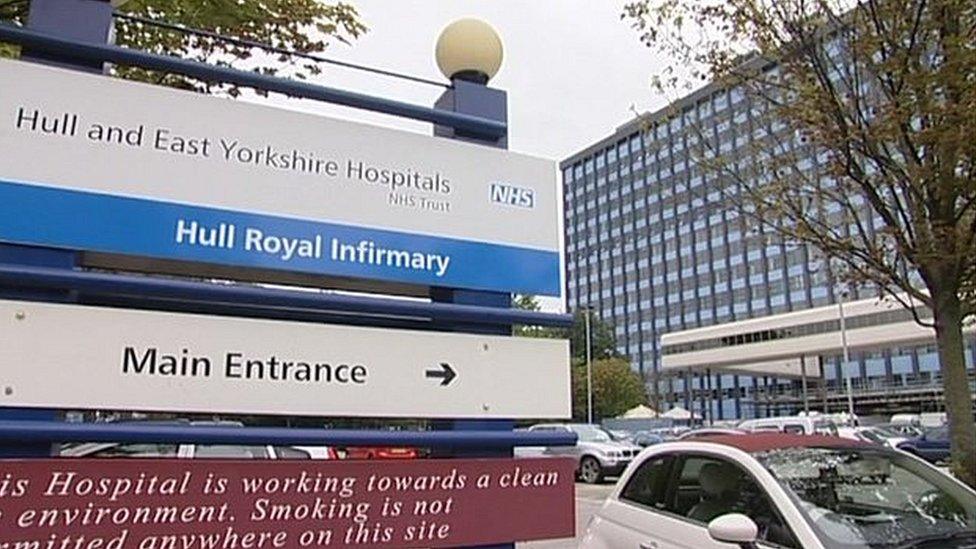Covid: Hull is infection hotspot as young urged to get vaccine
- Published

Hull City Hall has been part of the city's vaccination programme
Health officials in the city with England's highest Covid-19 infection rate have urged young people to get vaccinated.
Hull recorded a rate of 608 new infections per 100,000 people in the week to 9 August.
Deputy public health boss Tim Fielding said they were "directly related" to unvaccinated younger people.
But, due to jabs, the city was not seeing "anything like" earlier hospitalisation numbers.
"The vast majority of cases testing positive are now younger people aged 15-30 and there are far, far fewer in the older population," he added.
"That is directly related to people in that age range not being vaccinated currently, hence that's our real priority and with restrictions easing people are increasingly mixing and socialising."
Mr Fielding added people should still "show some caution" when socialising and he encouraged mask-wearing, particularly in crowded places and indoors.

Hull recorded one death within 28 days of a positive Covid-19 test on Thursday.
The city has seen 651 people die within 28 days of a positive Covid-19, external test since the start of the pandemic.
Vaccination figures for the city's adults show 170,808 (84.8%) have received one dose and 138,894 (68.9%) had both jabs.
Both of the vaccination rates are below the national average.

In the week to 8 August when more than 1,500 new infections were recorded in the city, 34 people were admitted to hospital with the virus.
The seven days to 3 November saw a similar number of cases but the number of people admitted to the areas hospitals was far higher, at 87.
Julia Weldon, the city's director of public health, said: "There is strong evidence that the vaccine is protecting our most vulnerable.
"Evidence is showing that those who are vaccinated are far less ill if they catch Covid and they are less likely to pass it on to someone else."

Follow BBC Yorkshire on Facebook, external, Twitter, external and Instagram, external. Send your story ideas to yorkslincs.news@bbc.co.uk, external.
Related topics
- Published5 February 2021

- Published29 January 2021

- Published10 November 2020

- Published26 October 2020
